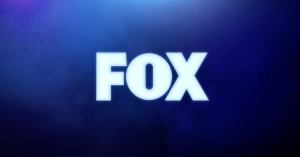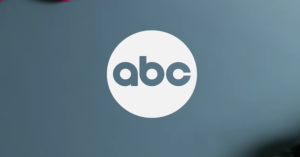Action movies today tend to come with a pretty hefty budget attached to them.
In the world of Transformers, Batman, and Teenage Mutant Ninja Turtles we get loud explosions that cost well over $100 million. But what about the action thrillers that get our blood pumping and could almost be considered indie films? That deserves respect. The Purge series director James DeMonaco has found an effective, but still creative formula that produces these kinds of films.
Videos by PopCulture.com
PopCultureNow.com spoke with the writer/director about his massively successful Purge series and how it originally came about. Like many classics, DeMonaco’s anarchy-based films come from a unique meshing of creativity and real-life occurences.
“It was a combination,” he said. “I grew up in the Brooklyn-Staten Island-New York City area and there was a lot of gang violence and you grow up with it just kind of around you. I guess everything came to a head when I lived in Paris filming my first film and I realized how different the Parisians look at violence. That coupled with this very strange thing my wife said in a road rage incident. She’s a good lady. She’s a doctor and helps people, but she said something when we were cut off by a drunk driver and it was a big scene and the cops came and everything. Afterwards, she said in anger, ‘I wish we had one free one a year. One free legal murder a year.’ And I hope she didn’t mean it. That coupled with everything that I had been thinking about Americans with a unique relationship with violence and that’s how this annual holiday came about. And I picked a metaphor for me dealing with that in my own head.”
Along with the film’s poignant social commentary, each entry has been produced for highly economical budgets, ranging from $6 million to $13 million with returns that easily surpass $60 million. DeMonaco has put together artistically beautiful films that are both attractive to studios and to audiences nationwide.
“That’s really nice to hear,” DeMonaco said. “Honestly, more than anything I’ve heard, that’s the nicest comment because that’s really, really one of the hardest things to me. We’re so limited. And I speak for me and the whole crew when I say, ‘thank you for noticing that.’ We were shooting really elaborate action sequences and we were hoping someone would notice. No one goes to the trailer. We don’t even have trailers. It’s very nice to be noticed.”
DeMonaco is known for his gritty, almost POV style of filmmaking. A style that captures the audience and takes them on a first-hand ride with the main characters. Meshed with this is a beautifully dim light lighting that promotes curiosity and tension from the audience.

“What I did with my DP Jacques…and he was against this at first, but there really was no other way,” DeMonaco explained. “I asked for the whole set to be lit. The idea here was ‘let’s light the whole set and once we start shooting, we don’t stop.’ And we just kept going. We were not stopping to re-light. And DPs don’t like it typically because they aren’t tweaking the lighting. Light your whole set. Block your whole scene. Rehearse it. Don’t stop. There’s always some reason to stop shooting when on set. Don’t stop.”
With this conservative style of shooting, DeMonaco channeled his inner John Carpenter.
“Very John Carpenter, exactly,” he said.
DeMonaco’s success, though, did not come overnight. In fact, it came over years and years of screenwriting (Jack, The Negotiator) that eventually lead to him getting behind the camera.
“So it was always a means to an end, I won’t lie. I grew up with no attachments to the industry at all. Literally no one,” he said. “And I just assumed you had to write your way in. I didn’t know any other way. That what’s going to get me behind a camera. So early on it was always with a means to direct. It took some time. Once I wrote The Negotiator, I was writing bigger material. Then I met these French guys, they hired me to write Assault on Precinct 13, and that’s where it all clicked.”
With DeMonaco’s Purge series being a massive success on nearly every level, there is a bright future for the storyline not only in feature films, but on television as well.
“Everybody wants it. The studio wants it,” he said. “I don’t think I’ll direct it. I think I can say that without getting in trouble with anyone. I think I am going to write part four and there’s also a miniseries they want to do. I think I’ll have a writing hand in both. And for the movie, I’d like to do a prequel. I’d like to go back in time to see where it all started from. It seems right to me. That feels like the right kind of avenue to pursue. The trilogy feels complete. I feel like if I did a fourth one it would take away from the third one. Going back in time seems right. And the TV show is a whole different animal.”
From Assault on Precinct 13 to The Purge series, DeMonaco has paid homage to filmmakers he’s admired since he was just a teenager. Carpenter, Coppola, and Scorsese have all played a role in what we see on the screen from him today.
“Growing up as a kid you go through these different periods of your life,” he explained. “As far as The Purge, I think that’s more when I was 13 or 14. It was the movie I wrote for my 13 or 14-year-old self. I was obsessed with Escape from New York by John Carpenter. I was obsessed with Walter Hill films, The Warriors, George Miller and The Road Warrior. And then as I grew up, Scorsese and Coppola. I was also a huge Fellini fan and I hope people see the absurdist influence on The Purge films. You get older and keep changing and get influenced by different people.”
[Embed id=52344]The Purge: Election Year[/Embed]









